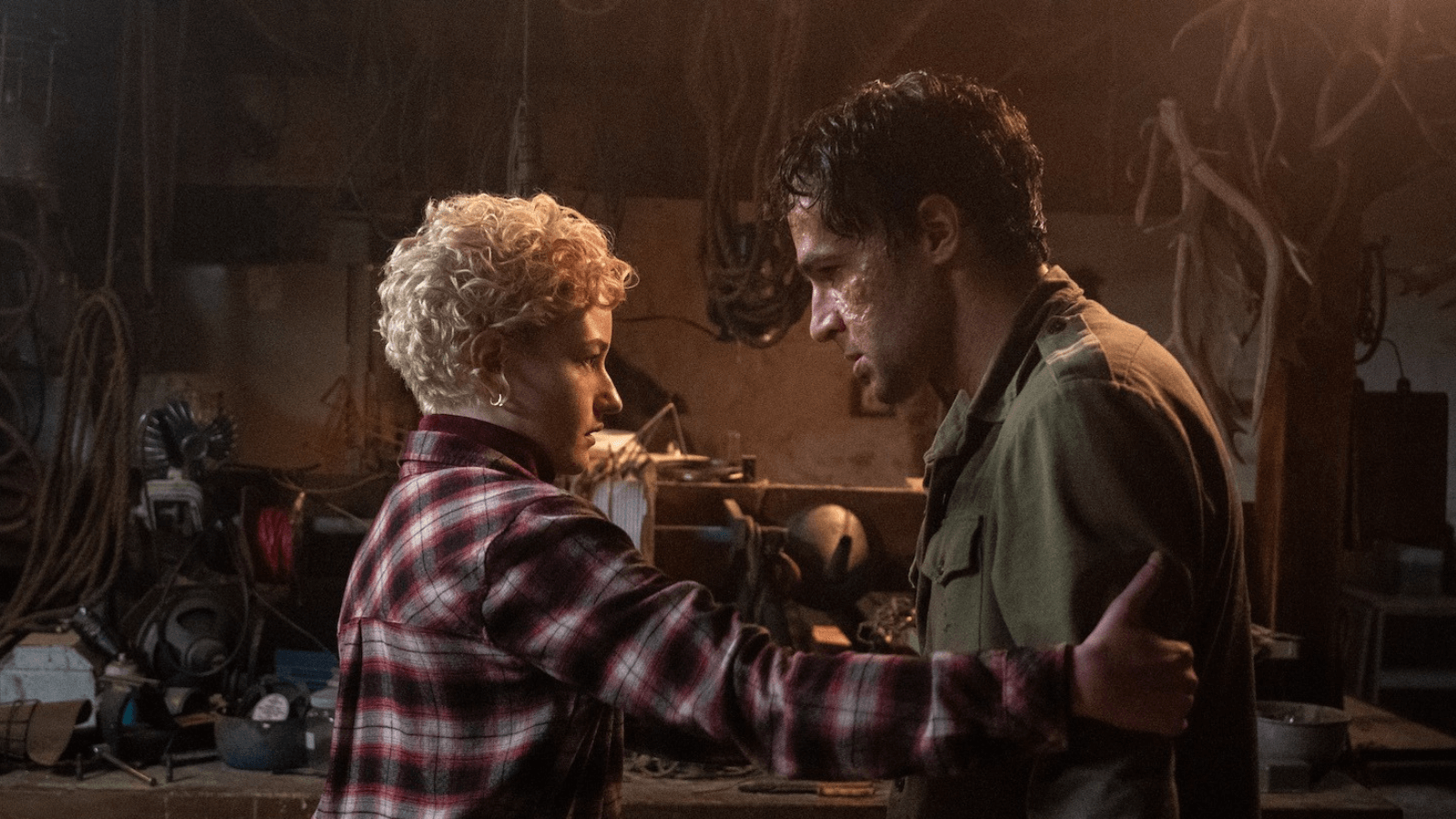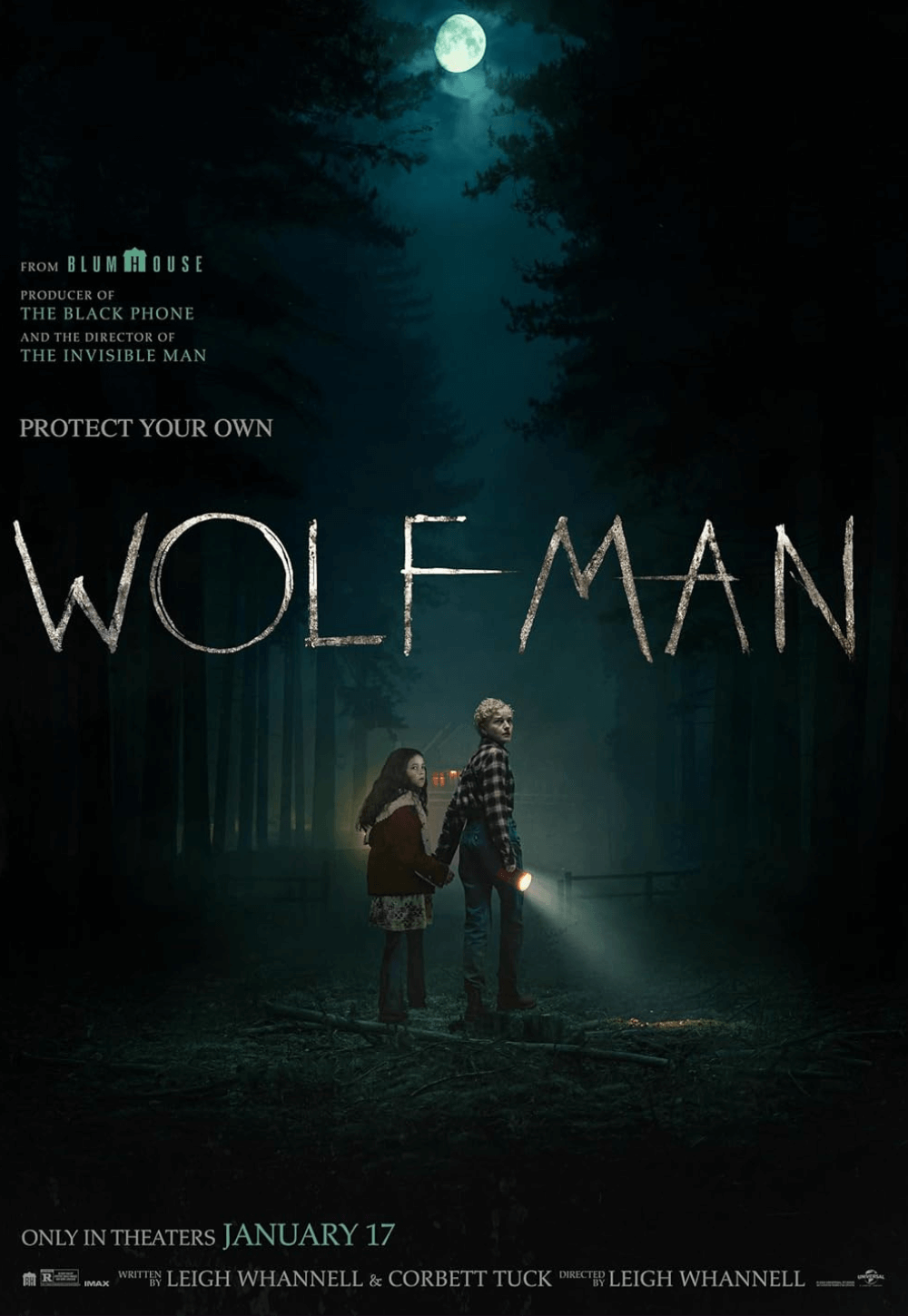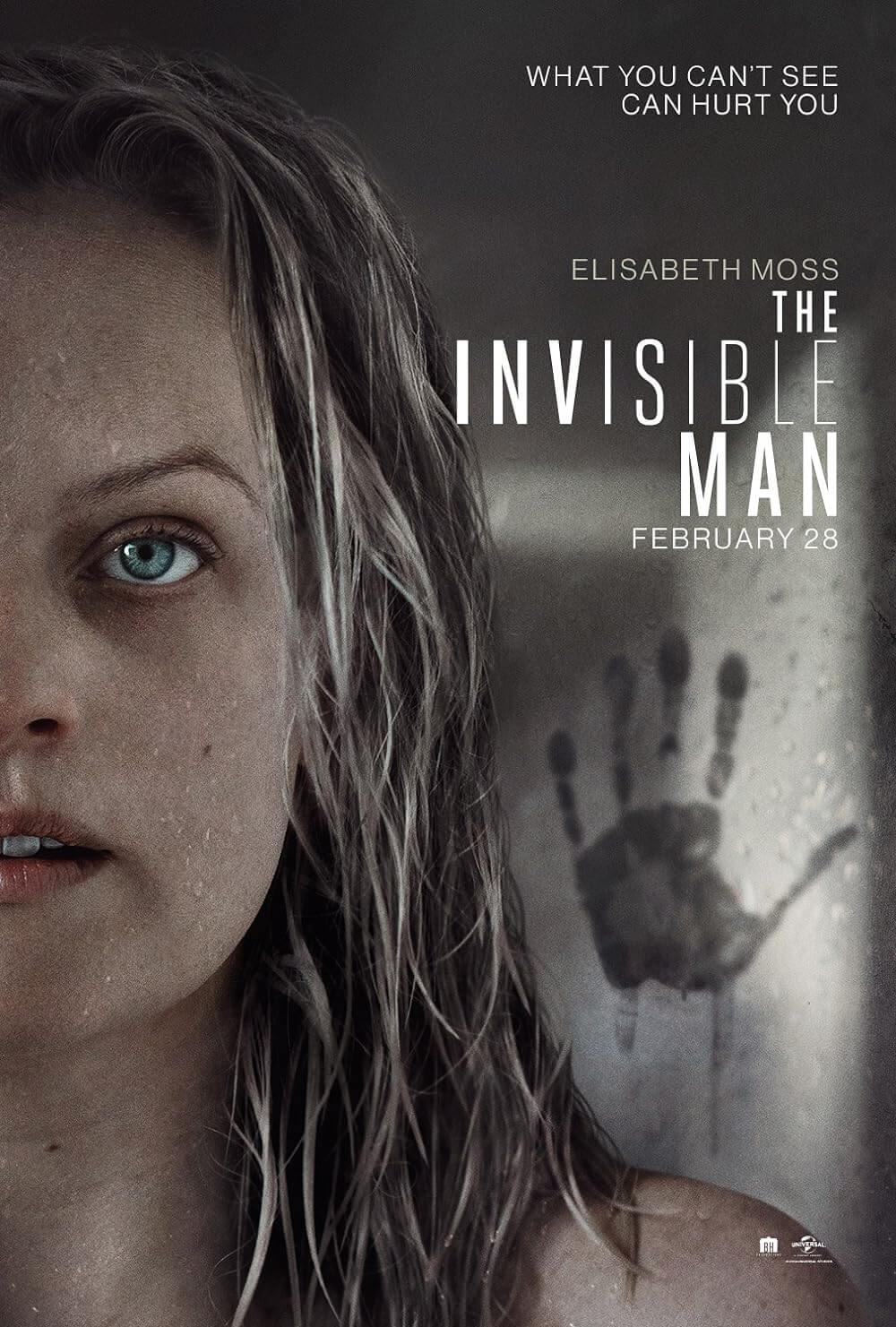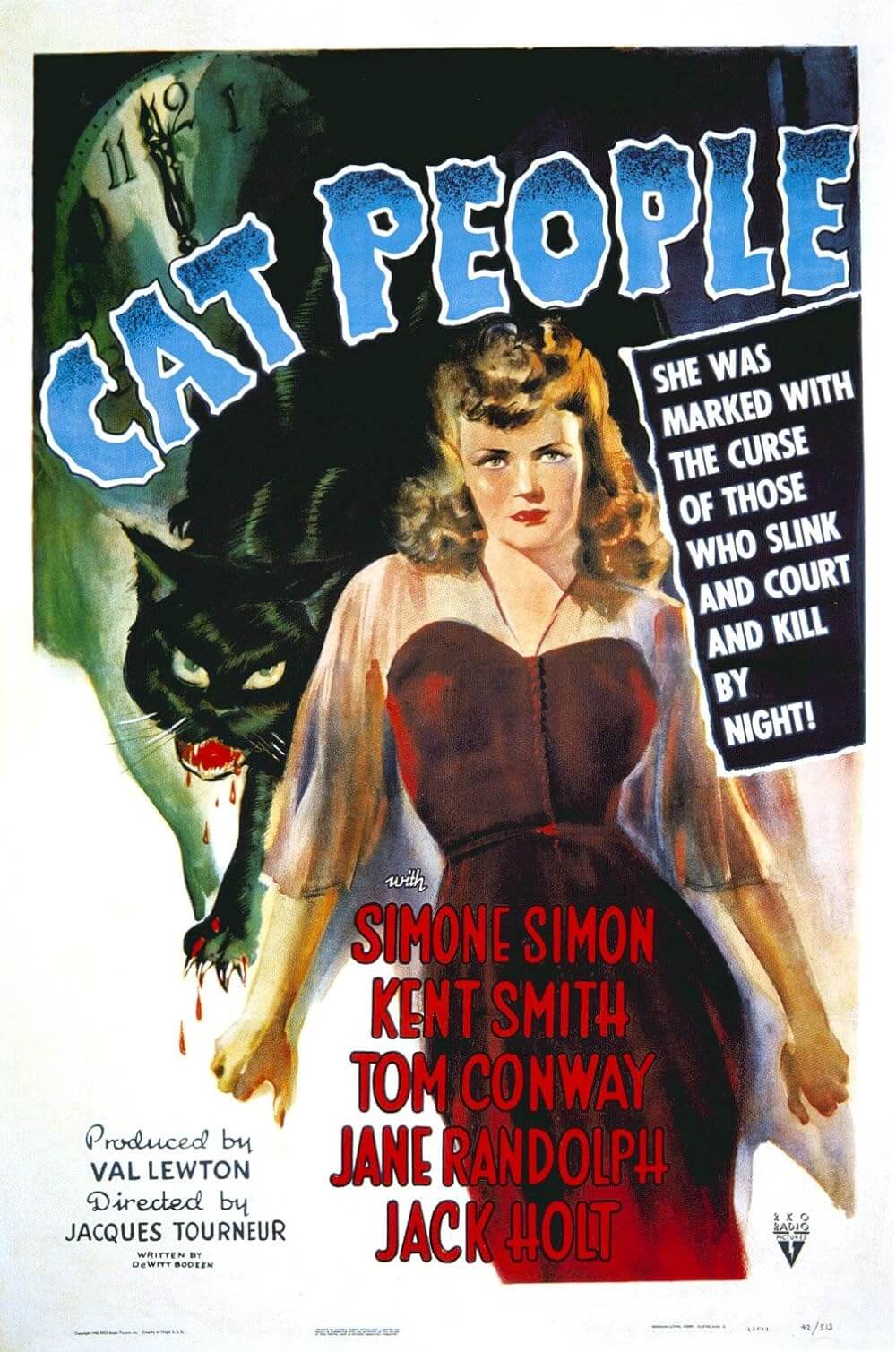
Wolf Man
By Brian Eggert |
Universal Pictures continues its ongoing mission to recycle classic monster IP with Wolf Man, a project that, with writer-director Leigh Whannell behind the camera, had all the promise of becoming something great. After all, the studio already enlisted Whannell to tackle The Invisible Man in 2020—an inspired reconsideration of a mad scientist yarn, albeit from the perspective of a wife escaping a violent and oppressive relationship, with the abuser’s unseen behaviors captured in a perfect #believewomen metaphor. In a smart move, Universal has teamed with Blumhouse to produce lower-budget versions of these stories, countering expensive commercial failures from The Wolfman (2010) to The Mummy (2017). And working alongside co-writer Corbett Tuck, Whannell offers another unconventional take on an icon with Wolf Man. But the result is far less elegant or thoughtfully symbolic than his previous remake. Saddled by heavy-handed dialogue, thin characters, and a compressed timeline, this new iteration offers a few novel ideas and spends so little time developing them that the viewer may hardly notice its innovations. The result is disappointing and all the more frustrating because of its unfulfilled potential.
Since Werewolf of London (1935) and The Wolf Man (1941) first popularized werewolf lore among the moviegoing public, countless versions have used the monster myth to confront the duality of humans. Far too many examples focus on special make-up effects and werewolf transformations over pesky details such as story, characters, and themes. Fortunately, Whannell and Tuck’s screenplay attempts to give the material an emotional backing, with a couple, Blake (Christopher Abbott) and Charlotte (Julia Garner), who travel with their young daughter Ginger (Matilda Firth) from San Francisco to the Oregonian wilderness. Blake’s long-missing father has been pronounced dead, and their planned summer-long trip to his isolated farm will give the family time to reconnect. Almost immediately, their plans take a nosedive when some wild bipedal beast claws Blake after a car accident. Over one night, he transforms into a monster—based on an Indigenous legend known as the “Face of the Wolf”—while Charlotte and Ginger scramble to survive.
Although the one-night setup ensures immediacy and high anxiety, Whannell and Tuck haven’t backed the thrills with ample character development. Raised in the wilderness by his survivalist father, Blake learned some destructive behaviors. But he’s trying to resist them by developing a healthy relationship with his daughter. The movie’s message about how toxic masculinity is a learned behavior emerges in blunt-force dialogue, where Blake tells his daughter that sometimes parents are so afraid of scarring their kids that they unintentionally become a traumatizing force. Meanwhile, Charlotte, a journalist, remains a distant nonentity, leaving the talented Garner with little to do. Allusions to tension in the marriage prove vague, and the movie hardly penetrates Blake and Charlotte’s marriage, resorting to banal family dynamics, including an overused bit of schmaltz about Ginger’s ability to read her father’s mind. Whannell proves so impatient to get to the gory stuff—the special effects, both practical and CGI, look quite good—that he forgets to set the emotional hook.

Whannell’s influences reach beyond the mostly unsatisfying library of werewolf movies. Wolf Man has more in common with David Cronenberg’s The Fly (1986), an intelligent, unforgettable remake of the B-movie from 1958. Both Wolf Man and The Fly involve a relatively limited cast of characters and locations, with its protagonist facing a gradual physical collapse, much to the horror of his lover. Even Whannell’s ending is an homage to Cronenberg’s remake. But the mind-body dichotomy in Cronenberg’s film proved all the more tragic because Jeff Goldblum retained his intellect, even while his body was falling apart in the mirror. In Whannell’s hands, it takes only a short while for Abbott’s character to become a dog-minded creature who no longer understands English and sees in werewolf vision, which resembles a reverse image or photographic negative. Still, some latent memories linger in the beast’s mind—just enough to keep Charlotte and Ginger alive.
Watching Wolf Man will tell you whether you’ve chosen a good theater. Because the movie takes place mostly at night, the lensing by cinematographer Stefan Duscio embraces darkness. Whole sequences unfold with little or no light source apart from the moon. But given that most multiplexes dim their powerful projector bulbs to save on electrical costs, moviegoers might be unable to make out what’s happening. That was the case in my prescreening, held at a local AMC Theatre, where its 14 screens can be hit or miss (in fairness, this same multiplex has the best IMAX screen in Minnesota). The auditorium showing Wolf Man was a miss. Forget rich, inky blacks. The screen looked like the gray soup left in a painter’s solvent jar, with just enough illuminated to follow the action but not savor any detail, assuming there was some to appreciate. Frankly, I debated writing this review, as it’s arguable whether I actually saw the movie. This is too often the case with theaters, and if owners want moviegoers to return more often, they might try making the audiovisual experience worth leaving the house. Instead, Wolf Man might look better at home on a high-definition or 4K television.
Despite the lousy projection, a few visual elements stand out. Whannell’s last two features (including Upgrade, 2018) contained touches of cinematic bravado that made the experience somewhat playful in its thrills. Wolf Man features little of this, from what I could see. A familiar cold-breath callback feels like a wink to a similar scene in The Invisible Man. If there’s anything playful in this otherwise humorless movie, it’s that another werewolf attacks Blake through a doggie door, a detail Whannell doesn’t highlight for laughs but is nonetheless funny. However, the script remains the problem; the writers thoroughly underdeveloped their characters, either because they failed to give them depth or because those scenes were removed while editing to intensify the pacing. Despite the inspired use of the titular monster as a parable for the animal-brained nature of hypermasculine behavior and parental instincts, the theme is surface-level at best. Wolf Man offers a few jolts, some grisly body horror, and a worthwhile setup, but it does little to stand out from the vast inventory of werewolf cinema already available.

Thank You for Supporting Independent Film Criticism
Thank you for visiting Deep Focus Review. If the work on DFR has added something meaningful to your movie watching—whether it’s context, insight, or an introduction to a new movie—please consider supporting it. Your contribution helps keep this site running independently.
There are many ways to help: a one-time donation, joining DFR’s Patreon for access to exclusive writing, or showing your support in other ways. However you choose to support the site, please know that it’s appreciated.
Thank you for reading, and for making this work possible.
Brian Eggert | Critic, Founder
Deep Focus Review






